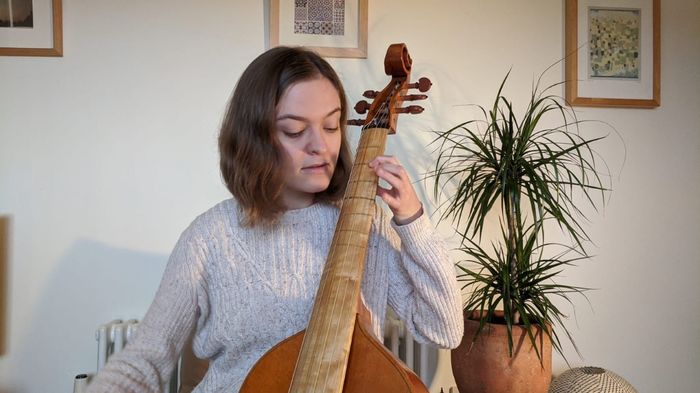BBC Proms 2020 in Context
Henrietta McFarlane reflects on the BBC Proms 2020 and whether its tacit purpose was a lament for the demise of the arts
The 125th year of the BBC proms was celebrated in an unexpected way over the summer as a result of the COVID-19 outbreak. In a range of online livestreams and previously recorded performances, the Proms provided a platform for classical music to re-emerge into public attention. I watched many of these on the TV in my living-room at home and was completely struck by the performances’ ability to represent our current cultural and political climate. The Proms have taken on a central and lonely presence in the musical world at this time, as the 8-week-long festival has become a cultural microcosm of the UK and the world at large in 2020.
So, what was lockdown like for freelance performers? Other than the slightly hopeful and, in my opinion, unsatisfying patchworks of musicians’ video recordings played ‘in time’ to a click track, the performance scene dried up upon the call for lockdown. For the freelance performer, this hit extremely hard, with cancelled events leading to loss of work and consequently no pay. These musicians fall under the self-employed category. Shockingly, half of those in financial hardship are not eligible for grants under the government’s self-employment income support scheme. Whilst this is a brief overview of the situation, it sets the scene for why the Proms 2020, as declared by the BBC, were “not the Proms as we know them [but] the Proms as we need them”.
With its name and reputation, the Proms 2020 offered a beacon of hope to all musicians (including freelance performers). If a musical event was going to take place this year then it would be the Proms! Whilst live stream performances only made up part of the broadcasted performances this year, many orchestras were asked to perform. These orchestras, to name a few, included the BBC Symphony Orchestra (Beethoven’s 'Eroica' Symphony conducted by Sakari Oramo), the London Symphony Orchestra (with a programme culminating in Vaughan Williams’ ‘Symphony No.5’ conducted by Simon Rattle) and the Britten Sinfonia (in collaboration with Anoushka Shankar and Gold Panda). All of these live streams were broadcast to BBC Radio Three, BBC Four and on iPlayer. These orchestral performances in particular allowed large numbers of musicians at least one performance. Online charity collections were organised by the Promenaders’ Musical Charities, focusing this year on 'Help the Musicians' charity. Other than obviously raising funds for a very worthy cause, the organised collections also helped to bring the struggles of these musicians into the public sphere.
“With the Proms left behind as an idealistic memory, the harsh reality of the ongoing situation faced by musicians seemed to set in.”
The hardships that freelance musicians have faced since the outbreak of the coronavirus has been reflected in a number of ways since the 12th of September when the Proms ended. With the Proms left behind as an idealistic memory, the harsh reality of the ongoing situation faced by musicians seemed to set in. Following Chancellor Rishi Sunak’s announcement of the Winter Economy Plan, a partnership between the Incorporated Society of Musicians (ISM) and the Musicians’ Movement launched a campaign to financially support musicians and restart live performances during the pandemic. Rather than merely existing as a beacon of hope for musicians, the Proms could act as the forger of a new reality for the performing arts, with its successful live streaming and broadcasting in a safe and sensible manner. The campaign for musicians received wide coverage with its live protests in Parliament Square and Birmingham’s Centenary Square. This campaign featured hundreds of socially distanced freelance musicians performing part of Gustav Holst’s ‘Mars’, calling on the government for support during these unprecedented times.
These #MakeMusicWork campaign protests extend beyond the summer and the Proms, demonstrating musicians’ sense of hope for the future of their jobs and music performance more widely. Even in the face of Rishi Sunak’s suggestions that people should “adapt” to other lines of employment (yet another indication of the Government’s lack of support for the arts), musicians have stood their ground. Whilst not the final answer to the hardship faced by performers, on October 17th the government announced that £75 million would go towards saving 588 arts organisations across the UK. This (albeit thin) safety blanket is testament to the musicians who, in the face of adversity, fought for their rights as UK workers and have remained hopeful throughout the course of the pandemic.
So no, I do not believe that the Proms 2020 was merely a lament for the demise of the arts; it provided an inkling of hope for those working in the arts that performing could be successfully managed this year. What’s more, for audience members all around the UK, it reminded us of the feeling of experiencing live music and, despite sitting on my sofa at home, for me the performances held more magic than ever.
 News / Cambridge academics stand out in King’s 2026 Honours List2 January 2026
News / Cambridge academics stand out in King’s 2026 Honours List2 January 2026 Interviews / You don’t need to peak at Cambridge, says Robin Harding31 December 2025
Interviews / You don’t need to peak at Cambridge, says Robin Harding31 December 2025 News / AstraZeneca sues for £32 million over faulty construction at Cambridge Campus31 December 2025
News / AstraZeneca sues for £32 million over faulty construction at Cambridge Campus31 December 2025 Comment / Plastic pubs: the problem with Cambridge alehouses 5 January 2026
Comment / Plastic pubs: the problem with Cambridge alehouses 5 January 2026 News / Cambridge businesses concerned infrastructure delays will hurt growth5 January 2026
News / Cambridge businesses concerned infrastructure delays will hurt growth5 January 2026









